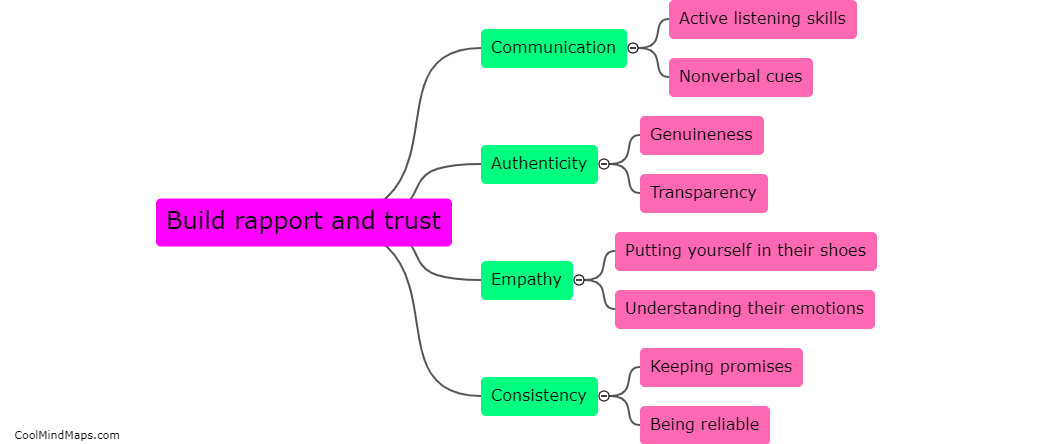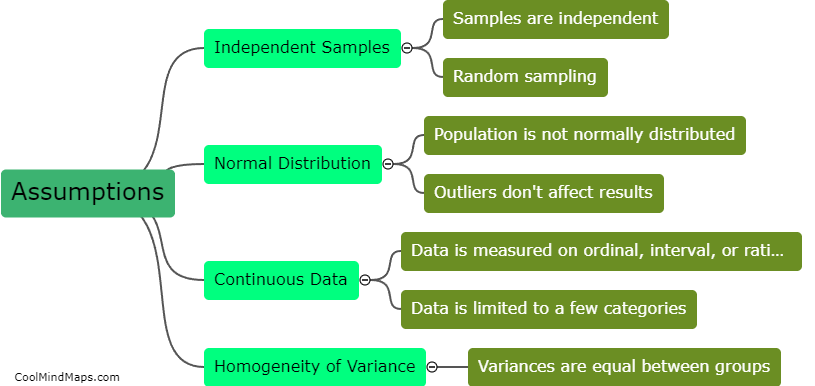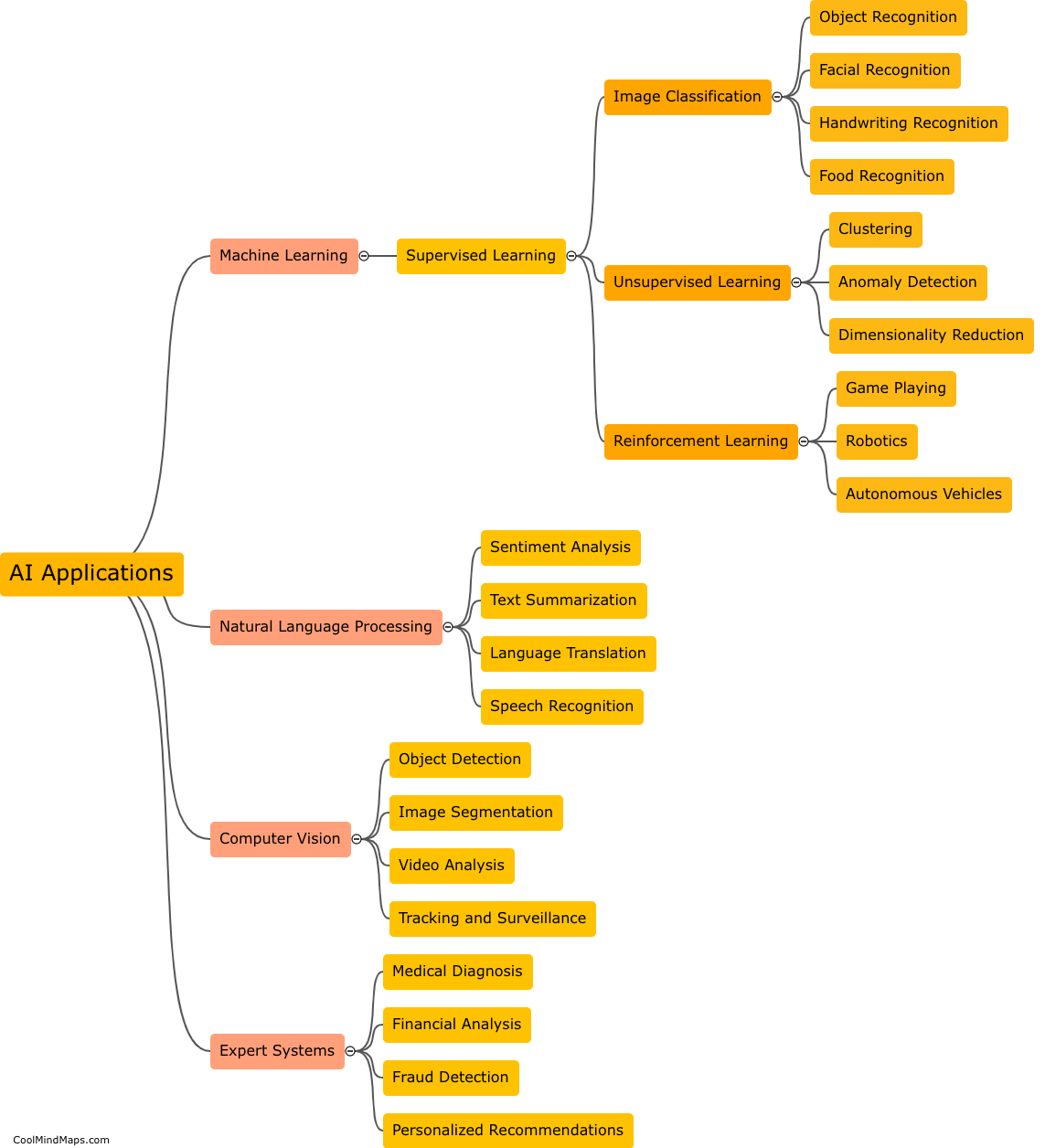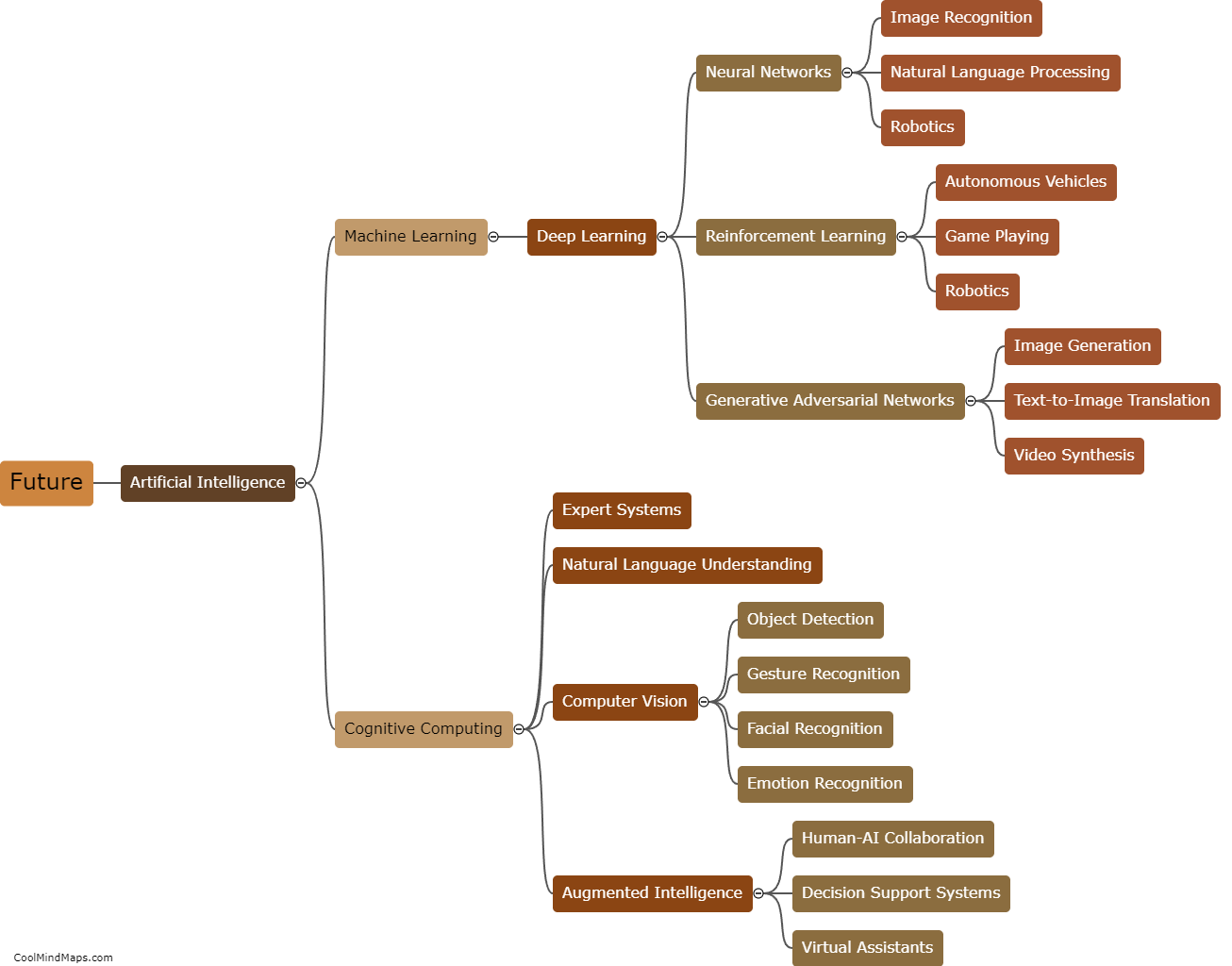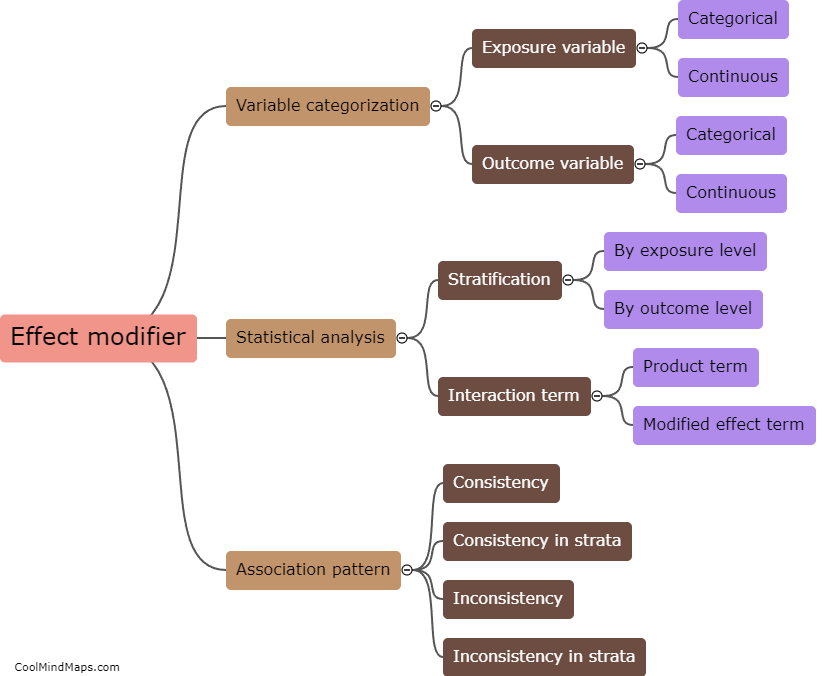How can you determine if a variable is a confounder?
To determine if a variable is a confounder, several considerations need to be made. First, it should be established whether the variable is related to the outcome of interest, as well as the exposure of interest. If the variable is associated with both the exposure and outcome, it has the potential to be a confounder. Additionally, the variable should be measured before the outcome occurs, as confounders must be present temporally before both the exposure and outcome. Furthermore, the variable should not be on the causal pathway between the exposure and outcome, as variables that lie in the causal pathway are mediators rather than confounders. Lastly, statistical methods, such as stratification or regression analysis, can be used to assess if adjusting for the variable eliminates or minimizes the relationship between the exposure and outcome, helping to clarify its role as a confounder.

This mind map was published on 13 October 2023 and has been viewed 116 times.


